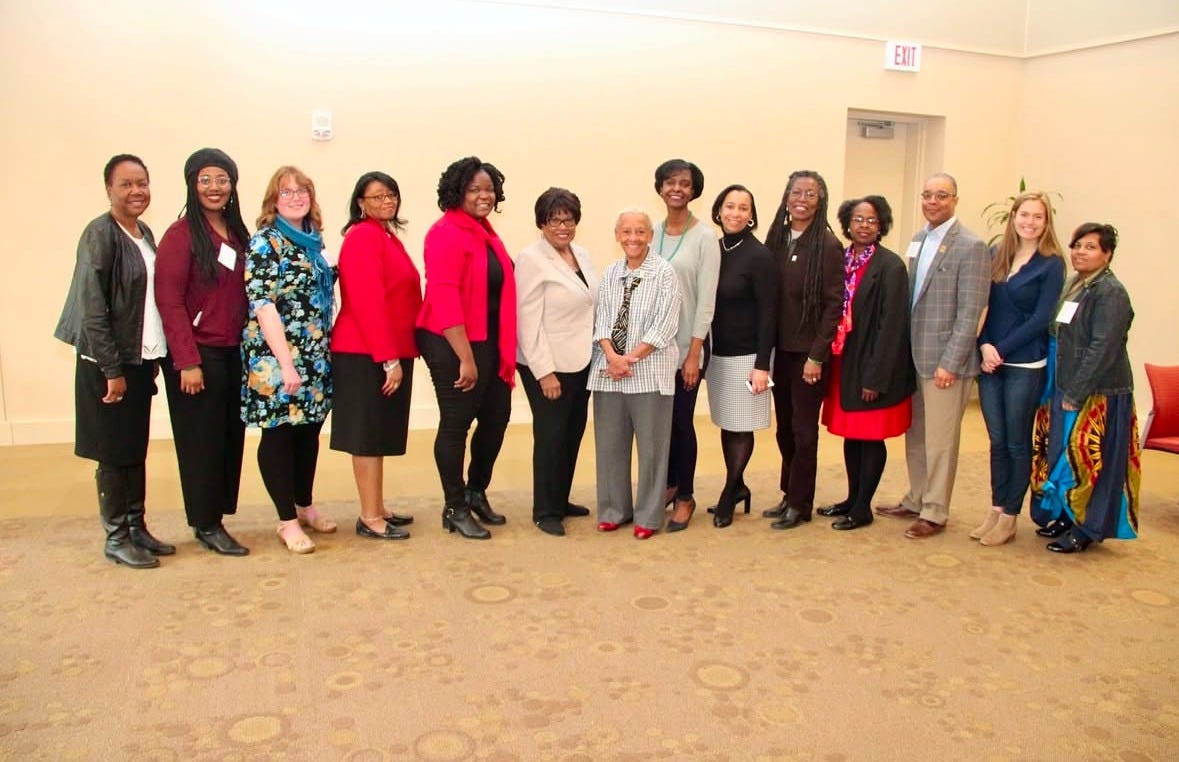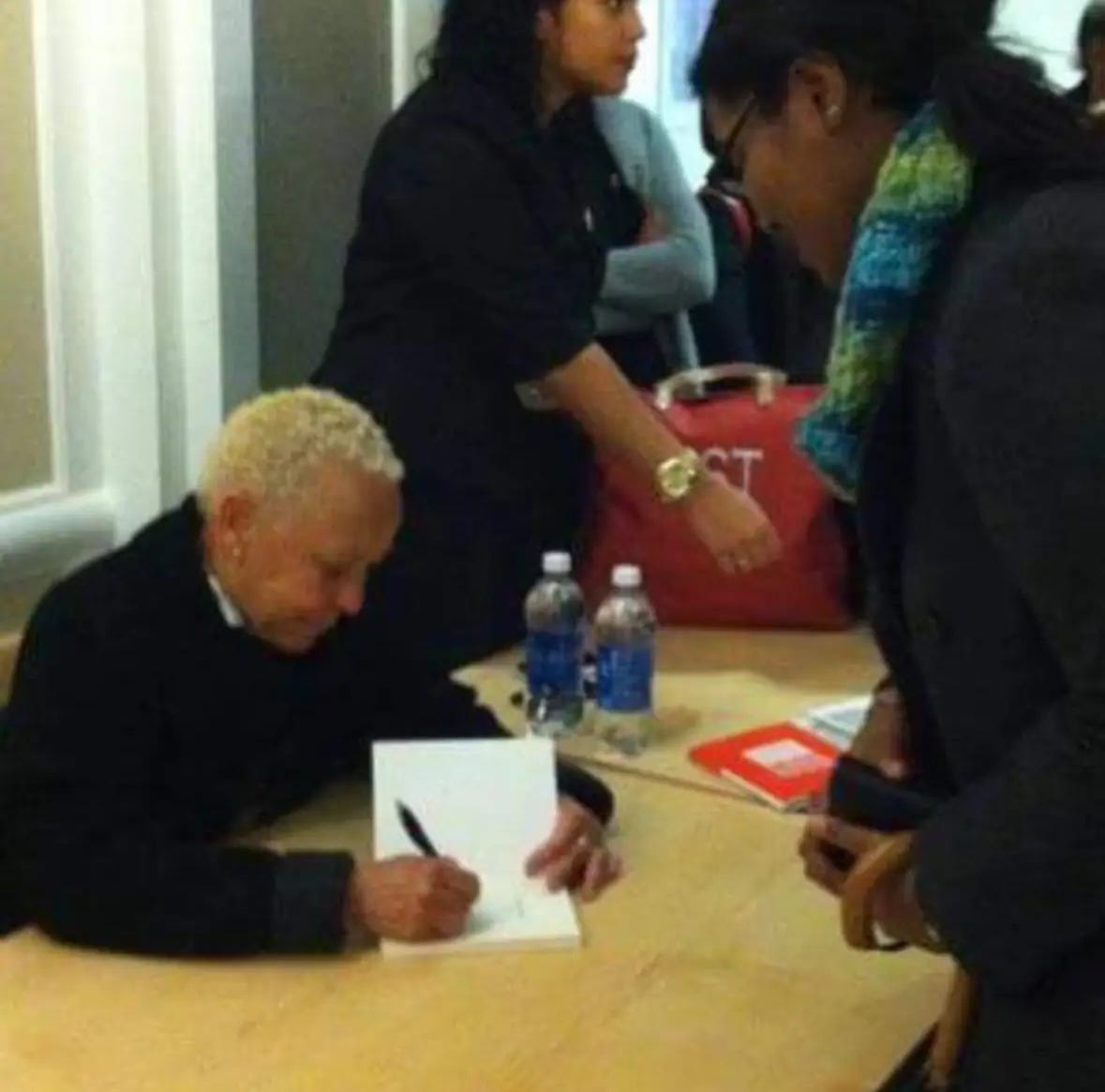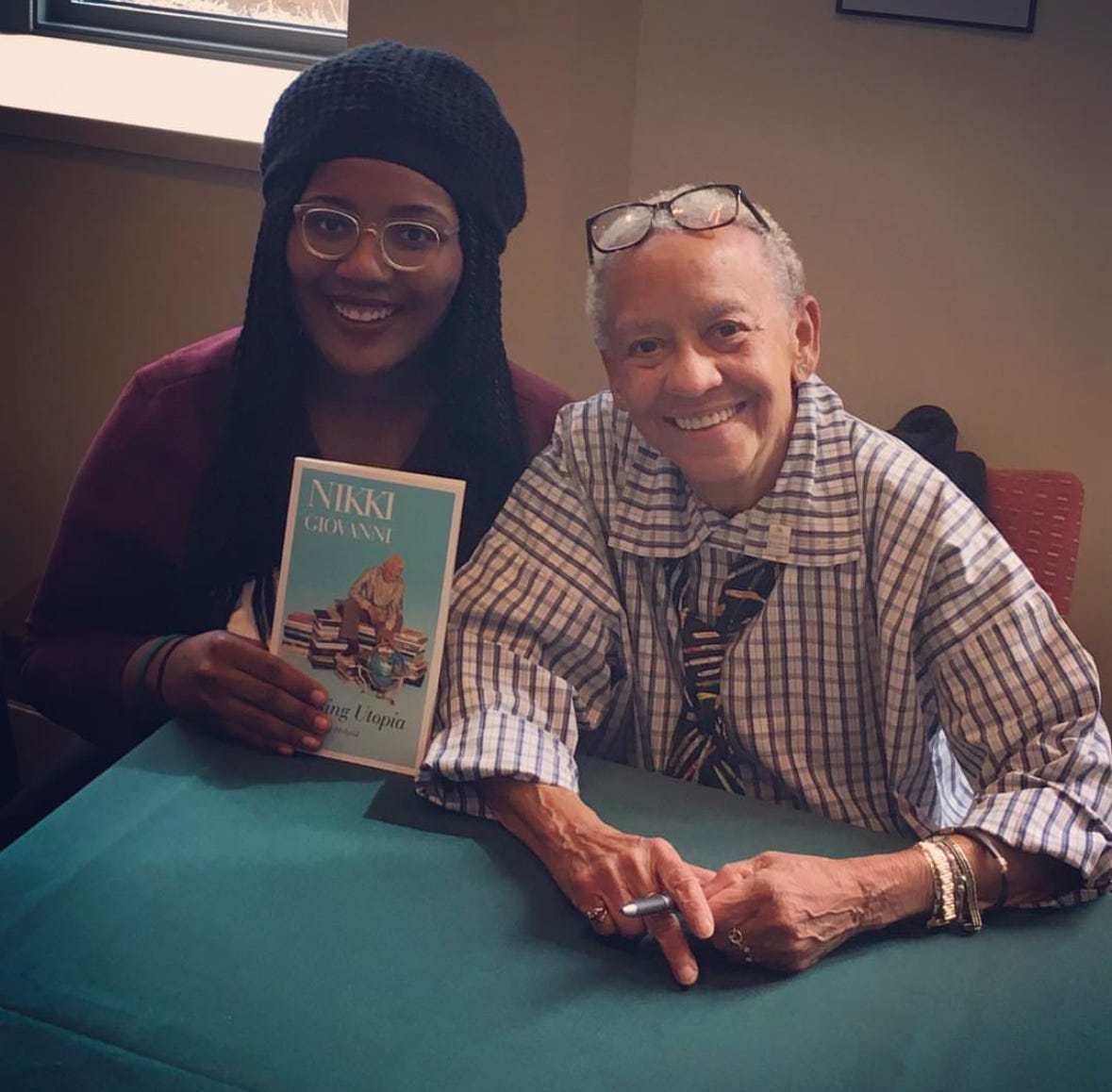I scribbled “a real down to Mars girl” on the back of all my notebooks when I was in the fifth grade and into middle school in the years after “Roses” by OutKast came out. I didn’t know what exactly it meant then, but I did somehow know that this phrase described me exactly.
When I was a first year at the University of Virginia, a fourth year student who was my friend and mentor, ArDonna, insisted that I had to come see the poet Nikki Giovanni give a talk. She was on the Black Student Alliance board and they had been working to bring her for quite some time. I knew only a little about her at the time, but ArDonna, a poet herself, spoke about Ms. Giovanni so fervently that I made sure I was seated in that auditorium.
I suppose I thought that Nikki Giovanni would be taller, a little snobby, because she was a professor and I associated her work with Literature, capital L.
But when she came on stage, five foot nothing with a megawatt smile for us, and started talking about any and everything under the sun, the only thing I could think was: She sounds just like my grandmother.
And that is a real down to Mars girl.
I came back to Nikki Giovanni and her words again and again over the next twelve years. There was a particular comfort in her work. Nikki Giovanni was sharp intellectually and handled words deftly. But what I loved most about her how she showed up in the world. I delighted that she often cursed on stage and then giggled at herself for doing so. She flashed her “Thug Life” tattoo. I remember her telling someone in the audience, “I didn’t catch your question as my hearing isn’t what it was, but I’m sure it was very good.” Aliens and outer space were frequent themes of her side quests as she answered questions, even when asked specifically about race in her writing.
Nikki Giovanni was the original Weird Black Girl™.
I found her writing matched her disposition. I loved listening to or reading her interviews. I found her candor and humility refreshing. She was quick witted and funny. She often told interviewers when she was bored of a question and didn’t care to answer. She cared very little about if she said something that offended, and once mentioned it was one of the best parts of being old.
I delighted in knowing that a Black woman who was equal parts alien and the best of humanity walked this earth. It gave me a comfort that there might be space for me.
I often felt this way about Zora Neale Hurston, who was so much of everything, a hurricane of her own making. But the difference was that I got to meet Nikki Giovanni and talk to her a couple of times. She was of Virginia, and that stayed with me even before I knew what exactly it meant. And best of all, I think everyone that met her, however briefly, felt the same way. When I opened Instagram in the hours that followed news of her passing yesterday, I scrolled through a seemingly endless string of Black writers sharing their own Nikki Giovanni photos and stories, creating our own digital homegoing service.
Nikki Giovanni was the People’s Poet.

I felt so much all at once when I read the headline of the NPR article my friend shared in our groupchat that told me she was with the ancestors. I blinked through the tears and realized: maybe now she’ll finally get to go to Mars.
Nikki Giovanni believed so much in spirit, in that transforming into other things. Yesterday, I had a beautiful writing session. I average between 500-1,000 words on a writing day, but the tap was on and I put down 3,000 words I really liked between a new novel draft and two essays I’d been working on. I wondered where the energy had come from since I’d been fighting to have days like this all year, but when I put down my laptop at around 5 PM, I just accepted what I had been gifted.
I wondered with my mom if she’d shared a little of her spirit with me as she traveled on.
“Maybe,” my mom said, but she nodded as if she liked the thought.
I liked the thought, too. I liked the thought that her spirit is visiting all the writers who loved her.
But mostly I find peace in the thought that after she’s whispered in all of our ears, settled in our souls, and gone on, at least some of Nikki Giovanni’s spirit will turn to stardust and drift to Mars.
If you would like to learn more about Nikki Giovanni, here are some things she has written, interviews she has given or documentaries about her I have enjoyed.
Going to Mars: The Nikki Giovanni Project (2024) is a documentary now available on HBOMax.
“Nikki Giovanni on Love, Rest and Care” is 2021 interview conducted by Pyar Seth for Public Books.
Nikki Giovanni’s interview in Black Women Writers at Work, a collection edited by Claudia Tate is one of my favorites. Originally published in 1984, it was republished by Haymarket Books in 2023. (Here is a TikTok I made a very long time ago reading my favorite excerpts from her interview.)
“Ego Tripping” is a classic Nikki Giovanni poem and one of my favorites.
Nikki Giovanni and James Baldwin in conversation (1971).





This was a beautiful tribute to her. I remember hearing her speak once at Temple University and being in awe of her. She will always be one of the great ones.